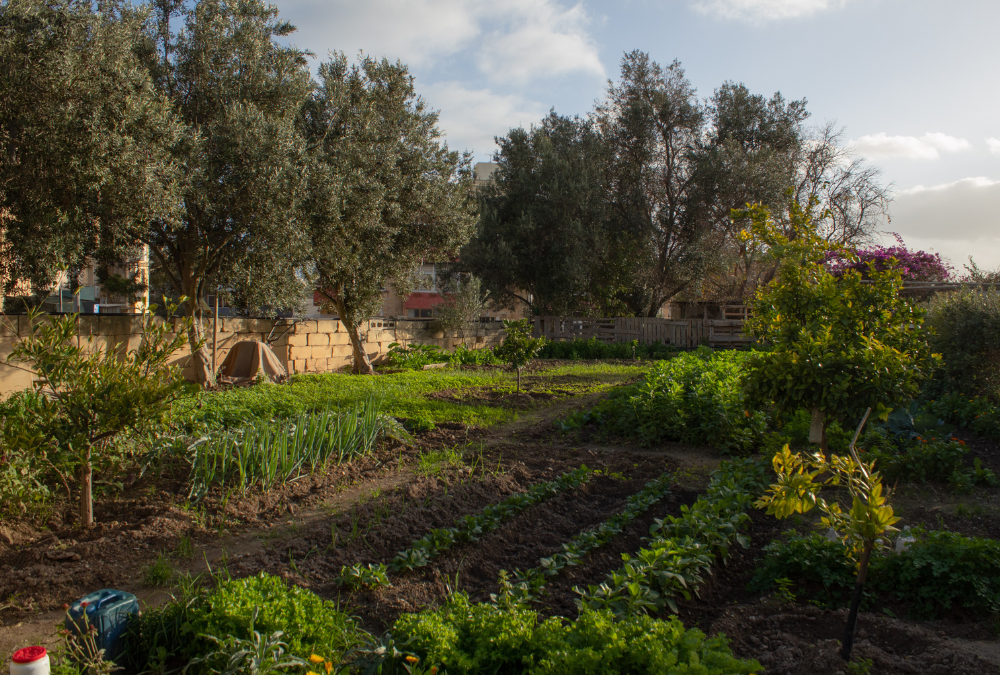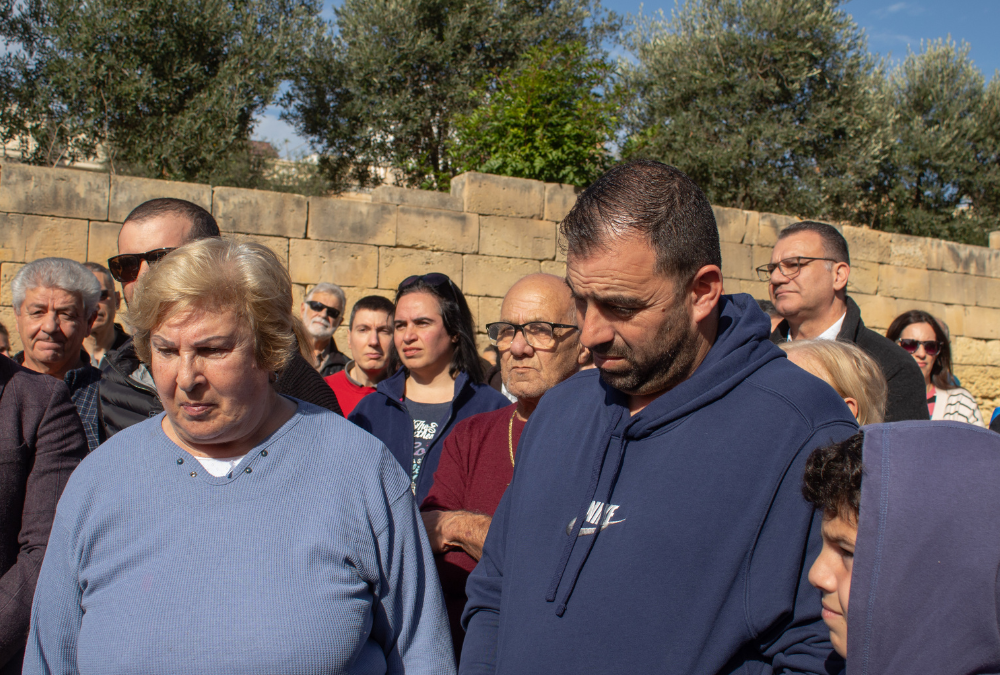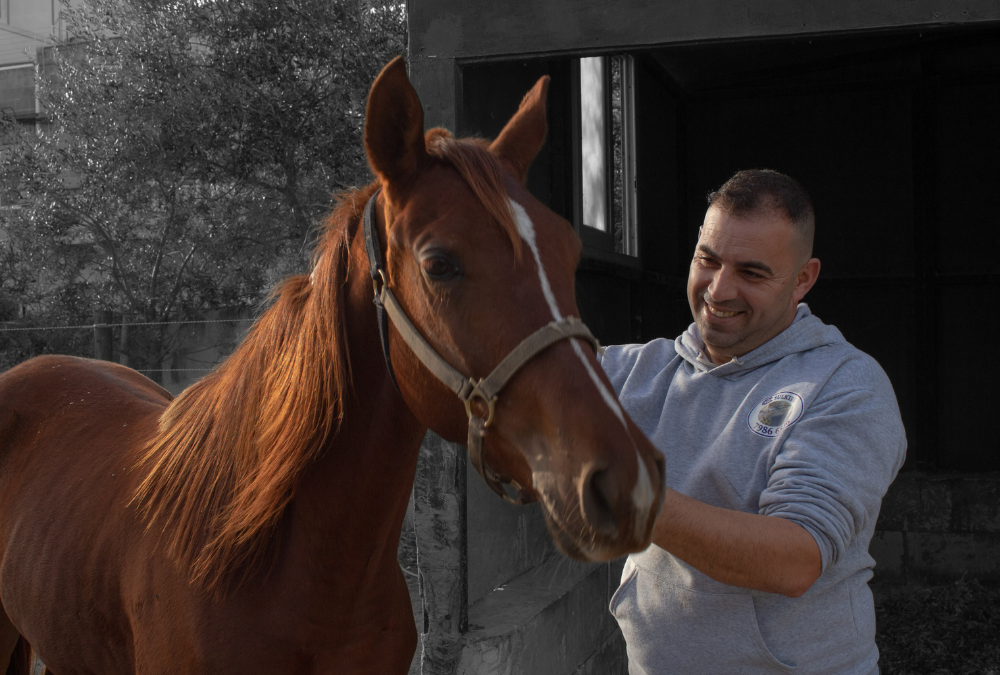This is an investigation that is split into a total of four separate articles. This article is the third in the sequence. The links to the other parts of the investigation can be found at the bottom of the main article, which you can access by clicking here.
On a relatively warm afternoon two days away from Christmas time, a horse breeder and taxi driver by the name of Ivan Bilocca invited me to a plot of land in Santa Luċija which has been in the custody of his family for two generations. He tells me about his eleven year old son, his pride and joy, and about how he is already into horses to the point where his beaming father swears he is “much better” than he used to be in his glory days as a jockey.
Although he is originally from Marsa, he speaks proudly of his locality like any other person who was born and bred in Santa Luċija does.
“In my opinion, Santa Luċija is one of the only remaining traditional villages in Malta. A small grocer’s shop, a church, a museum, there’s a little truck that goes around selling bread to everyone early in the morning, it’s clean, there are no tall buildings – it’s the ideal image of a Maltese town.”
As I cautiously entered the wide open gate, I notice that the plot of land appears pristine. I walk in to find Ivan busy in a small shed he uses to store his equipment. Two horses calmly went about their day in their enclosure. For the past thirty years, Ivan has called this place home, and it’s been connected with his family for over five decades. He says he practically grew up on this plot, learning his craft from his father and a beloved family friend who his father used to work with before the latter got seriously ill with diabetes.

A photo of Ivan’s plot as it stands. Photo: Julian Delia
I met Ivan because this plot of land that he happens to call home has the misfortune of being adjacent to another, hotly contested plot of land that is owned by major developer Anton ‘Tal-Franċiż’ Camilleri. The developer, represented by his architect, Labour Party deputy leader for party affairs Daniel Micallef, filed a planning application to build a major residential complex that is set to dominate the surrounding neighbourhood and irreversibly alter its character.
Ivan explained how, when the developer had first filed a planning control application to rezone the land, there were discussions about the developer compensating for the complete uptake of the open space of his plot of land by also developing a public garden at his expense on the adjacent land which Ivan farms and maintains for the rearing of his horses. Given that the adjacent plot is government-owned, the buck stops with the Lands Authority and whether it decides to sell off the smaller parcel to the developer.
“He (the developer) always insisted that he wants to develop his plot fully while financing a public garden somewhere on the site. That’s how I understood this. And let me be honest with you, my father took this really badly. Every morning, he used to come here to talk about what Tal-Franċiż is going to do to us,” Ivan says. He informs me that, so far, the government has not yet decided to sell the plot. But the anxiety persists.
“Two and a half months later, my father had a heart attack. Now I’m not saying that he got a heart attack because of this, because you can never really know when a heart attack is going to happen, but the concern was definitely there,” he adds.
He emphasised that no amount of financial compensation from the government or the developer could possibly make up for the loss of land. He passionately argued that he wouldn’t mind making formal arrangements with the authorities to ensure that access to the farm is open to the public as long as the place is kept clean and, “ideally”, he is allowed to use the space to continue rearing his horses. He insists that he is not carrying out any of the activity for profit, and that he enjoys warm relations with the nearby residents.
Besides his worries about losing access to a plot of land that is so dear to him and his family, Ivan also voiced serious concern for the fate of the locality given the onslaught of development it is facing. He makes it clear that he is not solely interested in preventing the loss of a significant part of his everyday life, but also in preserving the character and identity of the street which the Tal-Franċiż development is set to engulf.
When Ivan was present at a protest last week, which was organised by the local council of Santa Luċija to formally state its opposition towards Camilleri’s major residential complex proposal, residents who saw him clearly testified to his warm relations with them. One particularly vocal elderly woman repeatedly told anyone who would listen that nobody wants ‘lil taż-żwiemel’ (literally translates to: [he] of the horses) to leave the area because nobody wants this development to begin with.

Ivan listening to the local councillors as they speak at the protest at Triq Katerina Vitale. Photo: Julian Delia
While the Labour-led local council was quick to claim it is going to represent the residents’ interests when it comes to the development being proposed right next to the land Ivan has been farming for most of his life, the picture is not as rosy as it might seem based on that alone. In fact, the only local councillor who has consistently opposed all major development proposals in Santa Luċija is the Nationalist Party’s sole representative on the council, Liam Sciberras.
Sciberras was the only local councillor who responded positively to a request for an interview from this website. He provided an extensive description, backed by information that is well documented in the public domain, of how the Labour Party’s representatives on the local council had previously failed to oppose another major development – the football complex – and are insisting on building a civic centre on an untouched plot of land in the middle of Santa Luċija’s square. The plans for the civic centre were only downsized following intervention from Sciberras.
Given that the rest of the local council did not want to provide a filmed comment when approached by this website shortly after their public protest, questions about their conduct in relation to other developments were sent in writing as requested by mayor Charmaine St John. By the time this investigation was published, the local council had not responded to this website’s questions in spite of confirmation that the questions were received.
When asked about his relationship with the local council, Ivan says that today, Liam is their go-to man on the council. Previously, Frederick Cutajar, the vice-mayor of the town, used to be Ivan’s point of contact before relations between the two soured when the local council failed to immediately pronounce itself on the Tal-Franċiż development when it was first announced. Specifically, Ivan had noticed that when Daniel Micallef came into the picture, the local council had all but disappeared.
“Whenever I approached them about the development after the planning permit was filed, they suddenly became distant. I would ask them about something, and they started saying that they would look into it instead of saying what they were going to do about it. The way I’m seeing things, they actually give Liam a hard time whenever he tries to do his job, if anything,” Ivan argues.
When I mentioned that I was thinking of using the name ‘betrayal in Labour’s heartland’ as the name of the investigation his story would be featured in, Ivan indicated that the idea resonated with him. The name ‘Daniel Micallef’ brings a look of pained grief to his face as he tells me about his former support for the party in disgraced former prime minister Joseph Muscat’s moneymaking heyday. In light of Micallef’s key role in the development application, questions about his involvement were sent to the deputy leader. No answers were received by publication time.
“The Labour Party is no longer the party it used to be. Before, it used to be the socialist party that helped people, my family among them. Today, it’s the other way around. As a working man who is married to a woman who also works as hard as I do, I don’t feel that I am enjoying a good standard of living. I’m at the extremity where I am forced to fight for every penny just to survive,” he says.
“It’s not true that the Labour Party is a socialist party. How can it say that it is a socialist party when it is involved in a project that will benefit one man at the expense of many? He bought the land for a certain amount of money, and he will make a lot more money out of it. He is the only person who will benefit, along with people he employs, like Daniel Micallef.”
When I ask him point blank whether he regrets voting for the Labour Party in the general elections of 2013 and 2017, Ivan frankly admits that he does. He explains that between 2013 and 2018, he was making a small fortune from providing transport services for the clients of a golden passports firm. The going was good, until that “goldmine” eventually dried up and the steroidal effect it had on such services began to wane.
“I never really had a party, but I did vote for Joseph Muscat. I also voted for him the second time around, and now, I regret it a lot. The system they built was good only for the short-term, and I believe that when you do that, the consequences are huge and slow to reverse. In those five years, we got used to living a more luxurious life and we had the income to keep it up. Now, we need to suffer to live like we used to.”
His biggest worry today is whether he will be able to continue affording to pay for the expenses that are necessary for his son’s career and whether, at some point when diggers show up on his doorstep, he will have to tell his son that his dream to become a professional jockey will no longer be possible since he would not be able to find another location for his horses.
“We made a lot of money back then,” he muses, “but now, we are paying a dear price for it.”
The questions that the Labour Party’s deputy leader did not answer
1) It is abundantly clear that the residents of Santa Luċija are totally opposed to the project. The local council has also taken a position against this development, along with several NGOs who also presented their objections. How do you justify your involvement in such a project, especially when it is evident that it will permanently alter the character of the locality?
2) One of the Labour Party’s main electoral pledges in 2022 was the development of green spaces for the benefit of the public. In this case, you are directly profiting from the uptake of such a green space so a major residential complex can be built instead. Do you acknowledge that there is a clash between what your party promised the electorate and what you are directly enabling in your role as an architect? How do you justify this contradiction?
3) Residents I interviewed accused the Labour Party of using its influence in government to facilitate this project and that it is being approved because of Camilleri’s affiliation with the Labour Party. What is your response to this accusation?


